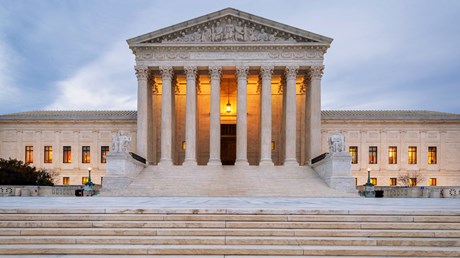After a string of victories at the Supreme Court, focus turns to one major precedent that could be overturned.

It is an auspicious time for advocates of religious liberty in the United States. Consider what they have accomplished at the Supreme Court over the past year: They defended the right of Americans to express their faith while on the clock for a public school district (Kennedy v. Bremerton School District), affirmed the right of religious schools to use government vouchers (Carson v. Makin), heightened the standards protecting workplace accommodations for religious beliefs (Groff v. DeJoy), and expanded free speech protections for business owners who don’t want to make statements that go against their religious beliefs (303 Creative LLC v. Elenis).
What’s left to win? If you ask experts closely following the developments on the legal battlefield, they invariably give the same answer: Employment Division v. Smith.
“I predict that religious liberty advocates will ramp up their attack on Smith,” said Carl Esbeck, a professor of law at the University of Missouri. “They understand that 303 Creative was a wonderful victory, but it was a halfway victory. It only protects speech … so if they want full protection under the First Amendment free exercise clause, they need Smith reversed.”
In fact, it’s already begun. First Liberty and Alliance Defending Freedom, two religious liberty law groups, have already petitioned the Supreme Court to hear cases that call for Smith to be overruled.
To understand why Smith matters, one has to go back more than three decades. In the late 1980s, two counselors from a rehabilitation center in Oregon were fired after they ingested peyote as part of a Native American religious ceremony. The counselors applied for unemployment but were denied by the state because ...
from Christianity Today Magazine
Umn ministry


.gif)

.gif)
.gif)
